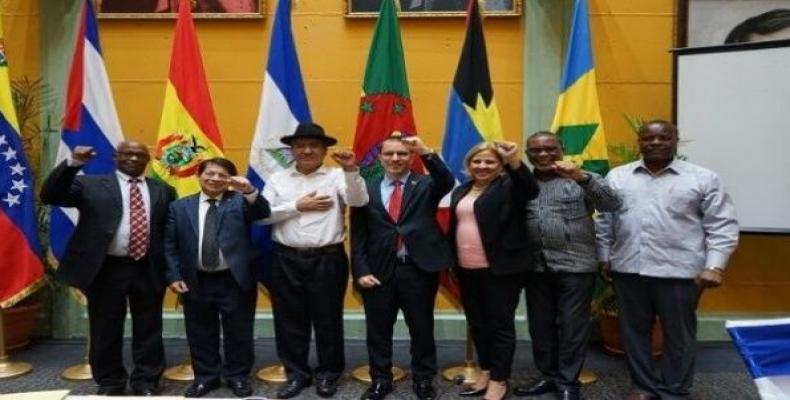Managua, November 15 (RHC)-- The political council of the Bolivarian Alliance of the Peoples of Our America-Peoples’ Trade Treaty (ALBA-TCP) -- meeting in Managua, Nicaragua -- discussed the military coup carried out against President Evo Morales in Bolivia.
"The issue of electoral fraud, the run-off vote, the next elections were all a pretext invented by the Bolivian right in order to carry out the coup," Bolivia's Foreign Minister Diego Pary said.
He added that the coup was carried out on Sunday, November 10, after the National Armed Forces and the National Police "suggested" Evo Morales resign, at a time when the country was already facing a wave of street violence spearheaded by opposition leader Luis Fernando Camacho and presidential candidate Carlos Mesa.
Diego Pary urged the international community to reject the breach in the constitutional order, as well as senator Jeanine Áñez as the new Interim President. He also called for respecting the lives and human rights of people still mobilized in the streets against the coup.
Venezuela's Foreign Minister Jorge Arreaza affirmed that the summit in Managua will not just end with a formal declaration condemning the coup, but also "a series of diplomatic actions."
"There is no coincidence in the fact that Bolivia has lithium in the ground, as well as gas reserves -- resources have been nationalized and since then started a process of economic and political stability, with millions of Bolivians brought out of poverty. Bolivia is an example for the peoples of Our America," said the minister.
Cuba's representative denounced the role of the Organization of American States in the coup, adding that the assault was "not only Bolivia but against the native peoples of our America."
Nicaragua's Foreign Minister repeated his support for Morales and condemned "the constitutional coup" and the wave of violence in the Andean country.
So far, only Brazil has recognized Anez. Other governments in South America, including neighboring Peru and Argentina, have so far held off.
In protests since the October vote, at least 12 people have been killed, the public prosecutor's office said, mostly by projectiles from firearms.
Morales, tweeting from Mexico, has called for dialogue to help "pacify" Bolivia, asking the United Nations and the Roman Catholic Church to help find a solution. The United Nations said in a statement it was "deeply concerned" about the situation in Bolivia and would send an envoy to La Paz.


